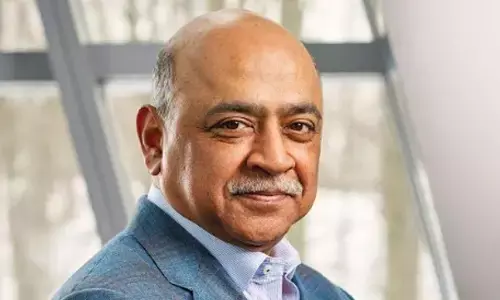New Delhi: 49% of teachers not prepared for AI impact, need urgent support
Share :

As artificial intelligence (AI) becomes all-pervasive, at least half (49 per cent) of the teachers feel unprepared for its impact, saying more must be done to empower and help them prepare students for an AI-enabled future, a new report has revealed.
New Delhi : As artificial intelligence (AI) becomes all-pervasive, at least half (49 per cent) of the teachers feel unprepared for its impact, saying more must be done to empower and help them prepare students for an AI-enabled future, a new report has revealed.
Governments should support schools to harness the potential of AI to transform education, according to the report by Oxford University Press (OUP), which has also made recommendations for school leaders and education business leaders to support the use of AI in schools and prioritise quality resources in education.
If the current education system does not adapt to the age of AI, pupils could experience inequalities in its implementation and risk being prevented from developing broader cognitive skills for the future, significantly impacting learning outcomes.
"Our research shows that teachers and pupils are optimistic about the role of AI in education and recognise how it has the potential to have a positive impact on learning. However, there are many unanswered questions and potential risks associated with this advancing technology,” said Nigel Portwood, CEO, OUP, a department of the University of Oxford.
The global publisher warned that without proper consideration of the risks and impacts of AI or clear guidance on how to use it, teaching and learning standards could be affected during an inevitable -- and necessary -- period of experimentation.
The report included existing research on the topic, supplemented with data from a survey of OUP’s global teacher network across the UK, Hong Kong, Japan, Italy, Australia, the UAE and other countries.
About 88 per cent of teachers would benefit from relevant insights and research on AI to be gathered in one place, the findings showed. “Half (47 per cent) of UK teachers think their students are already using AI in their schoolwork. This rises to 54 per cent of teachers around the world,” said the report.
By contrast, only one third (35 per cent) of UK teachers and 38 per cent of teachers worldwide are using tools driven by machine learning themselves. Next month, the UK will host the global AI Safety Summit.
The OUP is calling on governments worldwide to consider education in future discussions around AI and take action to ensure teachers and pupils can use it safely, in a way that positively impacts teaching and learning.
"As more people start to adopt, embrace, and experiment with AI, governments and education leaders need to take action -- and quickly -- to equip both pupils and teachers with the necessary skills so that they can thrive in an AI-enabled future,” said Portwood.
















